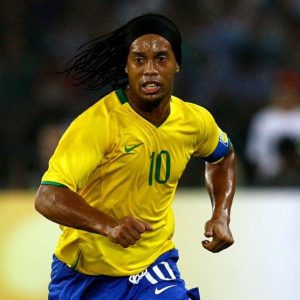

The Shared Attributes of ‘Elite’ Footballers
At the risk of stating the obvious, football is a multi-dimensional game. Variety, as the aphorism goes, is the spice of life, and the world’s most popular sport is no exception. Each and every facet of the game favours breadth of ability; to be the best, you need to be the best in a zillion different areas and master a million different minutiae.
But only a handful of players in a generation are born with the kind of kaleidoscopic talent which ensures safe passage to the upper echelons of the game. So often prodigious talents fall victim to their own god-given gifts; after a lifetime of naturally being the best they are, for the very first time, forced into the laborious process of self-improvement and are simply unable to adapt. Meanwhile, other less-dextrous players do a lot more with a lot less.
‘Industrious’ is the word used most often to describe these kinds of players. A stereotypical example would be ex-Man United full-back turned pundit, Gary Neville. Neville was the archetype for the industrial footballer: what he lacked in technical ability, he made up for in his leadership, defensive diligence and feverish work rate. Across a 15 year playing career, Neville won eight Premier League titles, three FA Cups and two Champions Leagues as well as amassing 85 international caps – all with a relatively limited skill set. There’s no doubt that Neville was an elite player, so if it isn’t technical ability that sets elite players apart from the rest, what exactly is it?
To simply answer ‘mentality’ seems reductive – as if to suggest that hard-work and determination alone are enough to earn a fast-pass to the top. No – as well as a superb mentality and skill-set, a player needs to be adaptable, intelligent, and coachable.
Adaptability is arguably the defining characteristic of ‘great’ players. While most elite players will have a few seasons where they perform at the peak of their powers, the greatest will be able to exhibit their remarkable prowess minute after minute, game after game, season after season. To do this, they need to be perpetually adapting to new tactical innovations, new managers, new clubs and, most significantly, their age. In this respect, Cristiano Ronaldo and Lionel Messi have set the bar almost unreachably high, but their example provides an idyllic blueprint for aspirational footballers everywhere.
At the age of 21, both were superstars. But, as the years performed their terrible dance on everyone around them, Ronaldo and Messi remained unmoved at the pinnacle of football. This is thanks, in part, to their adaptability. Messi’s goal return has stayed at the same level despite losing two of the best players of all time, Xavi and Iniesta, in his supporting cast. Ronaldo has lost his blistering pace but has won four of the last six Ballon d’Or. Their immeasurable success stands as testament to their ability to adapt.
Intelligence, how a player reads the game and their propensity to learn things without being spoon-fed, is one of the most criminally undervalued commodities in world football. While it is significant in every area of the pitch, it is the attribute that marks out world-class defenders from decent ones. If a centre-half has excellent anticipation and decision making, this mental-makeup is usually vastly influential in propelling their career into the stratosphere.
A ‘football brain’ is a much-talked-about phenomenon in the modern game, but popular to contrary belief, no one is born with one. While certain players might have brains that are more fine-tuned towards things like spatial-awareness and composure, every player still has to actualise these attributes through a deliberate process of self-improvement – a process that demands studiousness…
One of the most underestimated qualities of an elite footballer which, in a way, is subsumed by intelligence, is coachability – how willing and able a player is to be taught to improve by those with greater experience than themselves. Ironically, coachability is probably one of the hardest things to learn, both in football and in all walks of life. While players generally become easier to coach the older they get, coachability seems determined by their mindset which, in turn, is primarily determined by their genetics which, of course, are entirely out of their control.
Perhaps then coachability is the impenetrable X-factor which makes an otherwise good player an elite one. It gives footballers the key to unlock the door and ties together the rest of their capabilities; their skill, their mentality, their ability to adapt, and their intelligence.
Get to know more about Soccer HUB!
Follow us on Facebook!
Categories
Latest Courses
-
9 Lessons
-
1 Lesson
-
6 Lessons
You May Also Like
- Blog
- August 1, 2022
- Blog
- June 3, 2022
- Blog
- May 27, 2022
Developed by Brandit Digital Media Services.





